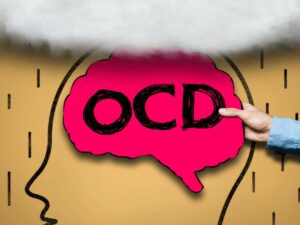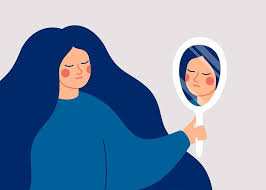Mental health is an increasingly discussed topic in today’s society. With the rising levels of stress, anxiety, and depression, it’s important to know more about mental health disorders and how they affect us. Two of the most common disorders are BDD (Body Dysmorphic Disorder) and OCD (Obsessive Compulsive Disorder). While these two conditions may share some similarities, it is important to understand them separately to properly treat them. In this blog post, we explore how BDD and OCD are related and why it’s important to distinguish between them.
Contents
What is BDD?
BDD, or Body Dysmorphic Disorder, is a mental disorder that causes a person to be preoccupied with one or more perceived defects or flaws in their appearance. People with BDD can spend hours each day obsessing about their appearance and engaging in compulsive behaviors such as excessive grooming, mirror checking, and skin picking. BDD can lead to significant distress and impairment in social, occupational, and other important areas of functioning.
The exact cause of BDD is unknown, but it is thought to involve a combination of genetic, biological, and psychological factors. Treatment typically involves cognitive-behavioral therapy (CBT), medications, or a combination of both.
What is OCD?

There are many different types of OCD, but they all share certain common features. People with OCD have:
- Unwanted or intrusive thoughts (obsessions) that cause them anxiety or distress
- A strong desire to perform certain rituals or behaviors (compulsions) to try to relieve their anxiety or distress
- Difficulty in controlling these thoughts and behaviors despite the negative consequences they may have on their life. People with OCD often realize that their thoughts and behaviors are irrational, but they cannot control them.
- This can lead to a great deal of distress and can interfere with work, school, and relationships.
Treatment for OCD typically includes a combination of medication, cognitive behavioral therapy (CBT), and exposure and response prevention (ERP).
How are BDD and OCD Similar?
The similarities between BDD and OCD are that both disorders involve intrusive thoughts, unwanted behaviors, and compulsions. Both disorders can cause individuals to become fixated on certain aspects of their appearance or behavior, resulting in compulsive behaviors aimed at controlling those thoughts or emotions. Additionally, people with either disorder may experience feelings of anxiety or fear related to their obsessions or compulsions.
Both BDD and OCD often lead to social isolation as a result of the individual’s inability to control the desire for perfectionism. With proper treatment and support, however, people living with either condition can lead fulfilling lives.
Other similarities between BDD and OCD include cognitive behavioral therapy (CBT) as a common form of treatment for both disorders, the ability to cope with symptoms through relaxation techniques and mindfulness, as well as the use of medications such as SSRIs or SNRIs. Additionally, both conditions may be affected by environmental stressors, including abuse or trauma.
Overall, BDD and OCD are similar in that they involve intrusive thoughts, unwanted behaviors, and compulsions. Treatment for both disorders is often cognitive behavioral therapy combined with medications to reduce anxiety and depression. With proper care and support, individuals can lead fulfilling lives despite their condition.
How are BDD and OCD Different?

There are several ways in which BDD and OCD differ. For one, BDD is a disorder characterized by a preoccupation with one’s appearance, while OCD is a disorder characterized by obsessive thoughts and repetitive behaviors. Additionally, people with BDD tend to engage in compulsive behaviors like skin picking and hair pulling, while people with OCD typically do not.
The key difference between BDD and OCD is the focus of their symptoms. People with BDD are typically concerned with minor flaws in their physical appearance, while those with OCD tend to be concerned with obsessive thoughts or behaviors that cause anxiety. For example, a person with BDD might spend hours obsessing over perceived imperfections in their complexion, while someone with OCD may have compulsive handwashing rituals that they feel compelled to perform throughout the day.
Additionally, people with BDD often seek treatment from plastic surgeons or dermatologists for their body image issues, whereas those suffering from OCD usually seek help from mental health professionals such as psychiatrists or psychologists. Ultimately, although both disorders have similar underlying causes (e.g., anxiety), there are distinct differences between them that can help in the diagnosis and treatment of each condition.
With proper care, both BDD and OCD can be managed effectively so that those affected can lead healthy, productive lives. If you or someone you know is struggling with either disorder, it’s important to seek professional help as soon as possible. A mental health professional can provide a personalized plan for managing symptoms and support during this difficult time.
Tips For Treating BDD and OCD

There are several ways to treat both BDD and OCD, and often the two disorders can be treated simultaneously. Here are a few tips for treating both disorders:
1. Cognitive-behavioral therapy (CBT) is one of the most effective treatments for both BDD and OCD. CBT helps patients to identify and change negative thinking patterns and behaviors.
2. Exposure and response prevention (ERP) is another effective treatment for both disorders. ERP involves gradually exposing the patient to the things they fear and helping them to resist the urge to engage in compulsive behaviors.
3. Medication can also be an effective treatment for both BDD and OCD. Commonly prescribed medications include antidepressants, anti-anxiety drugs, and antipsychotics.
4. Self-help groups can provide support and guidance for people with BDD or OCD. These groups can help patients to share their experiences and learn from others who are dealing with similar issues. The International OCD Foundation is a great resource for finding self-help groups in your area.
5. Alternative therapies such as yoga, meditation, and mindfulness can help reduce symptoms of both BDD and OCD.
Conclusion
In conclusion, BDD and OCD have a lot of similarities, but there are also some key differences. While both disorders involve obsessive thoughts or behaviors, those with BDD typically focus on their appearance while those with OCD may be more concerned about organizing their lives. It is important to understand the distinctions between these two conditions to provide appropriate treatment. If you think that you or someone you know may suffer from either disorder, it is best to seek professional help right away so that proper diagnosis and treatment can begin.
For more information and guidance, please contact OCDMantra. OCD is a mental health disorder characterized by obsessions and compulsions. If you have any queries regarding OCD treatment, ERP therapy experienced therapists at OCDMantra can help: Book a trial OCD therapy session.


